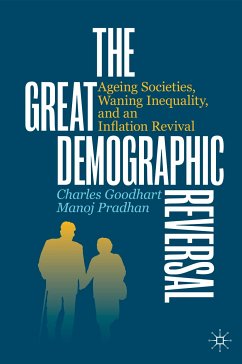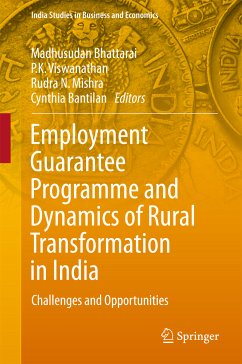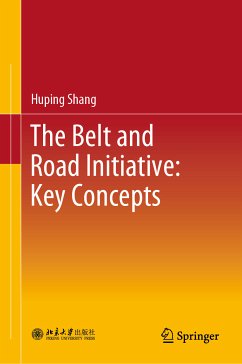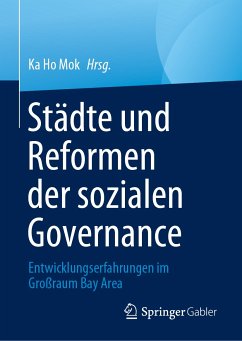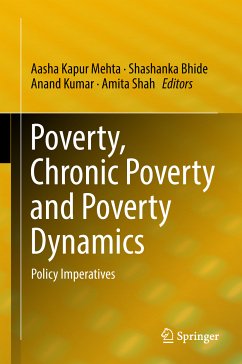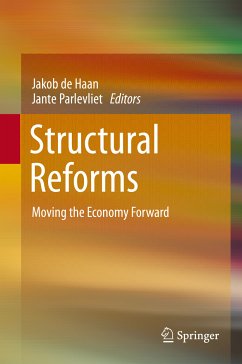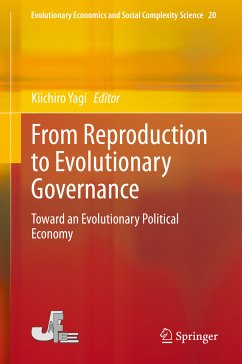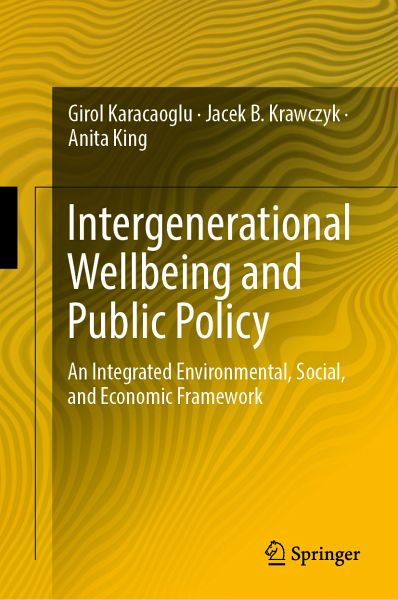
Intergenerational Wellbeing and Public Policy (eBook, PDF)
An Integrated Environmental, Social, and Economic Framework
Versandkostenfrei!
Sofort per Download lieferbar
88,95 €
inkl. MwSt.
Weitere Ausgaben:

PAYBACK Punkte
44 °P sammeln!
The distinctive contribution of this book is the formulation of an integrated social, environmental, and economic framework for public policy. This contribution is realised through investigations and conclusions in the following four domains: a formal stylised model that provides a platform for an integrated approach to public policy; a policy-informing simulation model that can be used to operationalise the public policy insights proposed in the stylised model; the implications of introducing fundamental (or radical) uncertainty and complexity into the policy framework; and the use of viabili...
The distinctive contribution of this book is the formulation of an integrated social, environmental, and economic framework for public policy. This contribution is realised through investigations and conclusions in the following four domains: a formal stylised model that provides a platform for an integrated approach to public policy; a policy-informing simulation model that can be used to operationalise the public policy insights proposed in the stylised model; the implications of introducing fundamental (or radical) uncertainty and complexity into the policy framework; and the use of viability theory to demonstrate how one can think of and implement public policy in an uncertain and complex world, when the focus of policy needs to shift to building resilience to systemic risks.
The book's stylised model is constructed by weaving together threads from the wellbeing, human needs, complex systems, sustainable development, endogenous economic growth, directed technical change, and credit-based-money literatures. Throughout, the perspective is that of a policy adviser to a "wellbeing state", as distinct from a "welfare state". The key linkages or relationships in the model are supported by empirical evidence that draws on the wider literature in related fields.
The book's stylised model is constructed by weaving together threads from the wellbeing, human needs, complex systems, sustainable development, endogenous economic growth, directed technical change, and credit-based-money literatures. Throughout, the perspective is that of a policy adviser to a "wellbeing state", as distinct from a "welfare state". The key linkages or relationships in the model are supported by empirical evidence that draws on the wider literature in related fields.
Dieser Download kann aus rechtlichen Gründen nur mit Rechnungsadresse in A, B, BG, CY, CZ, D, DK, EW, E, FIN, F, GR, HR, H, IRL, I, LT, L, LR, M, NL, PL, P, R, S, SLO, SK ausgeliefert werden.



